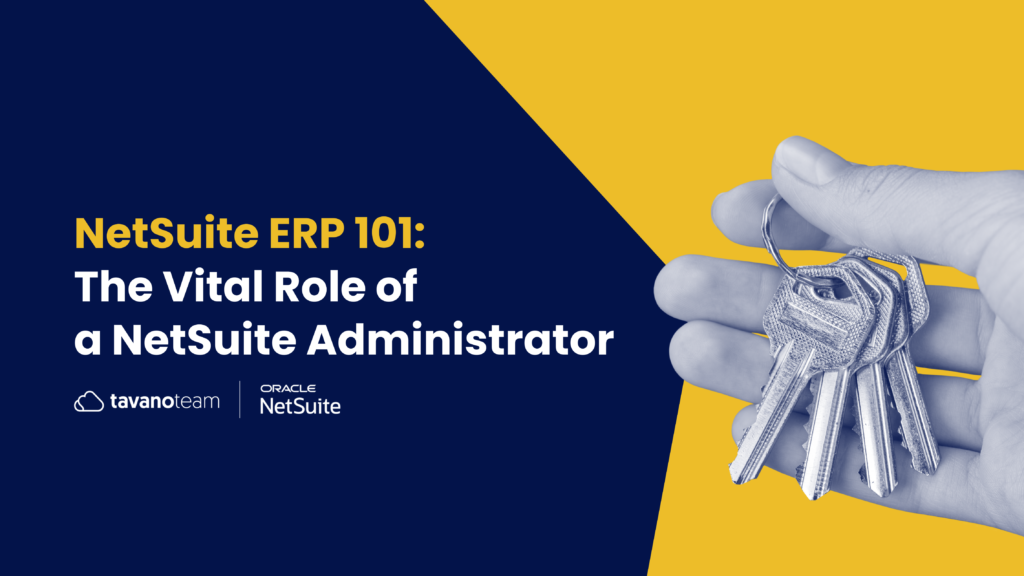It has been studied that Enterprise Resource Planning (ERP) system implementation led to business process improvement for 95% of businesses. As companies grow and expand, they notice the need for a robust ERP system that streamlines processes, enhances productivity and provides invaluable insights. In that category, NetSuite stands out as a cloud-based platform that integrates core business functions seamlessly and can be easily connected to other platforms to improve efficiencies even more. And behind every successful NetSuite implementation, there is a NetSuite Administrator, constantly orchestrating and optimizing the system to meet the unique requirements of their industry. Today, we explain what NetSuite Administrators do and why they are essential to any business running on NetSuite.
Understanding NetSuite ERP
Before diving into the role of a NetSuite Administrator, it’s crucial to grasp the essence of NetSuite ERP if you haven’t yet. NetSuite, acquired by Oracle in 2016, is a cloud-based ERP software suite for financial management, customer relationship management (CRM), eCommerce, inventory, human resources, and more. You can read our blog post on all you need to know about NetSuite and SuiteCommerce to learn more about these powerful platforms.
The Role of a NetSuite Administrator
A NetSuite Administrator serves as the person responsible for the NetSuite ecosystem within an organization. Their tasks include basic system maintenance but also strategic planning, customization, user support, and continuous optimization of the platform. Here’s a breakdown of the key functions performed by a NetSuite Administrator:
1. Configuration and Customization
One of the many benefits of NetSuite is that is it highly configurable, allowing organizations of different industries and verticals to tailor the system to their specific needs. NetSuite Administrators have to set up and customize modules, workflows, reports, and dashboards to align with business processes and objectives, leveraging the platform to its full potential to ensure maximum growth and efficiency.
2. User Management and Training
NetSuite has different roles and permissions to be assigned according to user responsibilities. Administrators oversee user access within NetSuite, ensuring data security and compliance. They should also provide training and support to NetSuite users across the organization so that they can leverage the full potential of the platform effectively and avoid adversities as much as possible.
3. Data Management and Integration
Data is at the core of every business strategy, and NetSuite can provide great insights if the data is correctly managed. NetSuite Administrators are responsible for data migration, cleansing, and integrating it with external systems if wanted, ensuring a seamless flow of information across platforms.
4. Monitoring and Optimization
NetSuite Administrators will monitor system performance, constantly troubleshooting issues and implementing optimizations to enhance efficiency and scalability. They have to stay updated on NetSuite updates and best practices to make sure they’re making the most out of the platform at all times. They will also collaborate with stakeholders to identify opportunities for process improvement, automation, and expansion of NetSuite capabilities to drive business growth.
For all companies implementing NetSuite, we always recommend a NetSuite Administrator who will help them leverage the platform and get its full worth. At Tavano Team, we excel at helping NetSuite-based companies achieve scalable growth and improve business processes. Contact us today to find out how we can help you make the most of your NetSuite ERP system!




